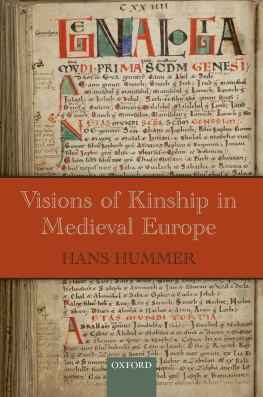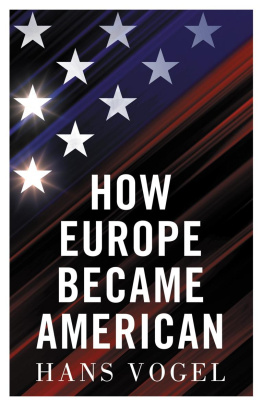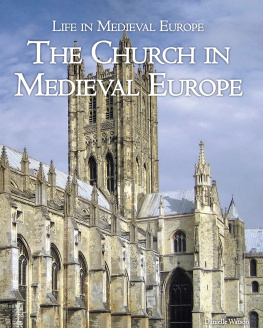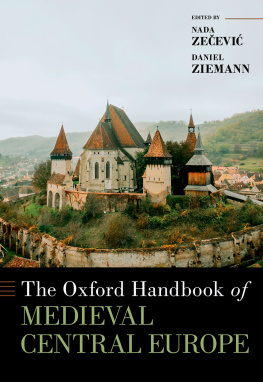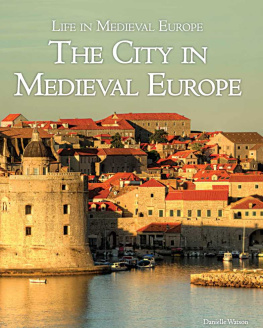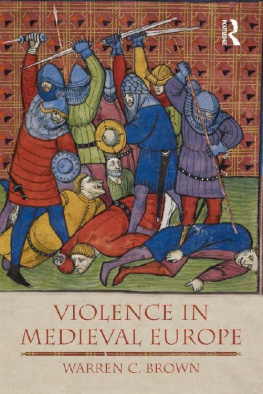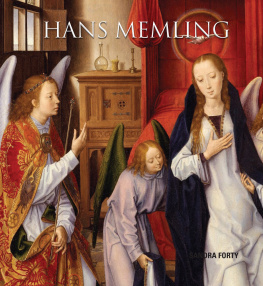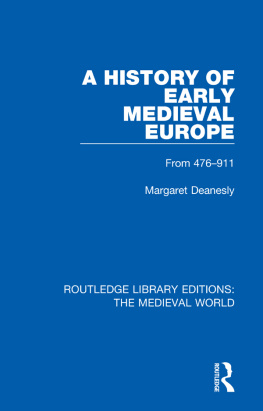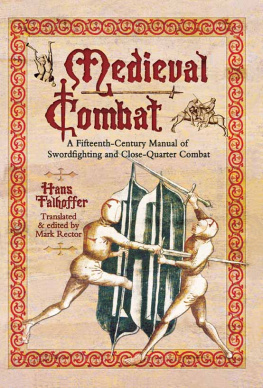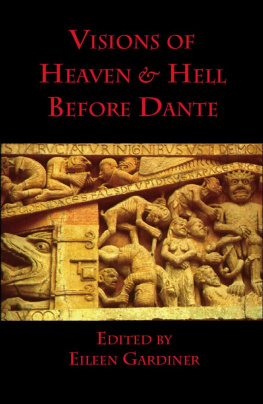Hummer Hans - Visions of Kinship in Medieval Europe
Here you can read online Hummer Hans - Visions of Kinship in Medieval Europe full text of the book (entire story) in english for free. Download pdf and epub, get meaning, cover and reviews about this ebook. year: 2018, publisher: Oxford University Press USA - OSO, genre: Religion. Description of the work, (preface) as well as reviews are available. Best literature library LitArk.com created for fans of good reading and offers a wide selection of genres:
Romance novel
Science fiction
Adventure
Detective
Science
History
Home and family
Prose
Art
Politics
Computer
Non-fiction
Religion
Business
Children
Humor
Choose a favorite category and find really read worthwhile books. Enjoy immersion in the world of imagination, feel the emotions of the characters or learn something new for yourself, make an fascinating discovery.
- Book:Visions of Kinship in Medieval Europe
- Author:
- Publisher:Oxford University Press USA - OSO
- Genre:
- Year:2018
- Rating:5 / 5
- Favourites:Add to favourites
- Your mark:
- 100
- 1
- 2
- 3
- 4
- 5
Visions of Kinship in Medieval Europe: summary, description and annotation
We offer to read an annotation, description, summary or preface (depends on what the author of the book "Visions of Kinship in Medieval Europe" wrote himself). If you haven't found the necessary information about the book — write in the comments, we will try to find it.
Visions of Kinship in Medieval Europe — read online for free the complete book (whole text) full work
Below is the text of the book, divided by pages. System saving the place of the last page read, allows you to conveniently read the book "Visions of Kinship in Medieval Europe" online for free, without having to search again every time where you left off. Put a bookmark, and you can go to the page where you finished reading at any time.
Font size:
Interval:
Bookmark:

General Editors
john h. arnold patrick j. geary
john watts

Great Clarendon Street, Oxford, OX2 6DP, United Kingdom
Oxford University Press is a department of the University of Oxford. It furthers the Universitys objective of excellence in research, scholarship, and education by publishing worldwide. Oxford is a registered trade mark of Oxford University Press in the UK and in certain other countries
Hans Hummer 2018
The moral rights of the author have been asserted
First Edition published in 2018
Impression: 1
All rights reserved. No part of this publication may be reproduced, stored in a retrieval system, or transmitted, in any form or by any means, without the prior permission in writing of Oxford University Press, or as expressly permitted by law, by licence or under terms agreed with the appropriate reprographics rights organization. Enquiries concerning reproduction outside the scope of the above should be sent to the Rights Department, Oxford University Press, at the address above
You must not circulate this work in any other form and you must impose this same condition on any acquirer
Published in the United States of America by Oxford University Press 198 Madison Avenue, New York, NY 10016, United States of America
British Library Cataloguing in Publication Data
Data available
Library of Congress Control Number: 2017957358
ISBN 9780198797609
ebook ISBN 9780192518309
Printed and bound by CPI Group (UK) Ltd, Croydon, CR0 4YY
Links to third party websites are provided by Oxford in good faith and for information only. Oxford disclaims any responsibility for the materials contained in any third party website referenced in this work.
To my four-fathers
Lloyd Hummer
John McCulloh
Patrick Geary
Marc Kruman
Books rest on the contributions of many. The late Karl Schmids work, a source of fascination since I met it early in graduate school, was the inspiration for my interest in kinship. Along the way the study picked up additional intellectual influences. I have noted them in the following chapters, but I mention in particular Mayke De Jong, Steven White, Anita Guerreau-Jalabert, Janet Carsten, and Eduardo Viveiros de Castro. I thank those who took the trouble to comment on all or parts of the manuscript: Patrick Geary, Jason Glenn, Christopher Johnson, Geoff Koziol, and Jay Rubenstein, as well as two anonymous reviewers. Geoff went above and beyond, annotating the entire manuscript and saving it from many errors. Oxford University Presss editorial team of Stephanie Ireland and Cathryn Steele, and crack production manager Saranya Jayakumar, and Donald Watt and Michael Janes ensured a remarkably smooth and timely publication process. The project was launched with the support of a Career Development Chair from Wayne State University, and a fellowship at the Max Planck Institut fr Geschichte. Hilary Hahns violin accompanied the solitary hours of research and writing; and my children, Genevieve and Peter, wife of thirty years, Sara, and our magical standard poodle, Cisco, kept it all from becoming lonely. Lastly, I have benefited from wonderful models of personal and professional decency. I dedicate this book to them: my genitor and pater Lloyd Hummer, who endured the Dust Bowl on a bleak farm in the Oklahoma Panhandle and at 85 still marvels that he became a doctor and sent all of his children to college; my undergraduate teacher John McCulloh, whose friendship, teaching, and wisdom have meant more than he knows; my Doktorvater Pat Geary, who remains an inexhaustible well of friendship, good sense, intellectual vigor, support, and advice; and Marc Kruman, a true mensch, my Chair for the first seventeen years of my career, and from whom I learned how to be a departmental citizen.
| CCCM | Corpus Christianorum Continuatio Mediaevalis |
| CCSL | Corpus Christianorum Series Latina |
| CDF | Codex Diplomaticus Fuldensis |
| CSEL | Corpus Scriptorum Ecclesiasticorum Latinorum |
| HSM | Hessisches Staatsarchiv Marburg |
| KF | Klostergemeinschaft von Fulda, ed. Karl Schmid et al. |
| LF | Liber Floridus, Ghent University Library, ms 92 |
| MGH | Monumenta Germaniae Historica |
| AA | Auctores Antiquissimi |
| LL nat. Germ. | Leges Nationum Germanicarum |
| SRG | Scriptores Rerum Germanicarum |
| SRM | Scriptores Rerum Merovingicarum |
| SS | Scriptores |
| PL | Patrologia Latina |
| PLRE | Prosopography of the Later Roman Empire |
| TF | Die Traditionen des Hochstifts Freising |
| TW | Traditiones Wizenburgenses |
| UF | Urkundenbuch des Klosters Fulda |
This study examines expressions of kinship between the late Roman Empire in the West and the twelfth century in Europe. It will focus on the areas of Continental Europe ultimately harnessed to Frankish rule and the aristocrats who dominated the historical stage and were responsible for its records. It will assume that the familial consciousness of those who made up this aristocracy was inseparable from the institutions which gave shape to the administrative and political order. That is, it will not assume that kin groups were (are?) self-evident and autonomous social phenomena whose existence has been obscured by our sources which must be purged of rhetorical contaminations so that we can see more clearly the social reality beyond them, and then processed by the methods of social history into an historical vision of the past recognizable to us. Rather, the study explores the ways that kinship, as a constituent of indigenous social cosmologies, expresses itself through, and is expressed by, the political and religious order, so much so that it is nearly impossible to speak of the former without accounting for changes in the latter.
Studies of kinship generally presume that kinship can be treated as a consistent and basic organizing principle of human social organization and that its patterns can be derived from historical records by tracing genealogical connections between individuals within a kin group. Indeed, its naturalness seems self-evident since historical sources are replete with references to kin ties and frequently deploy the language of kinship to widen the circle of affective bonds beyond blood relations. Despite the ubiquity of kinship in the sources, the genealogies have not been particularly easy to retrieve from the medieval record. As soon as one begins to trace out a kin group, the trail just as quickly fades, often leaving behind a smattering of names which seem to belong to descendants, but lack the context necessary to establish firm genealogical connections (assuming they had existed).
Why this should be the case is not so easily explained. Source discontinuities pose some problems in that their unevennessthe density of documentation in a region giving way to a thinner record, to records of qualitatively different sort, or to none at allcan make it impossible to trace relationships. However, even in instances where we do possess a concentration of documents, genealogical connections remain surprisingly elusive. Given the conviction that kinship was a basic element of medieval social life, why were they not exhibited more clearly?
Font size:
Interval:
Bookmark:
Similar books «Visions of Kinship in Medieval Europe»
Look at similar books to Visions of Kinship in Medieval Europe. We have selected literature similar in name and meaning in the hope of providing readers with more options to find new, interesting, not yet read works.
Discussion, reviews of the book Visions of Kinship in Medieval Europe and just readers' own opinions. Leave your comments, write what you think about the work, its meaning or the main characters. Specify what exactly you liked and what you didn't like, and why you think so.

